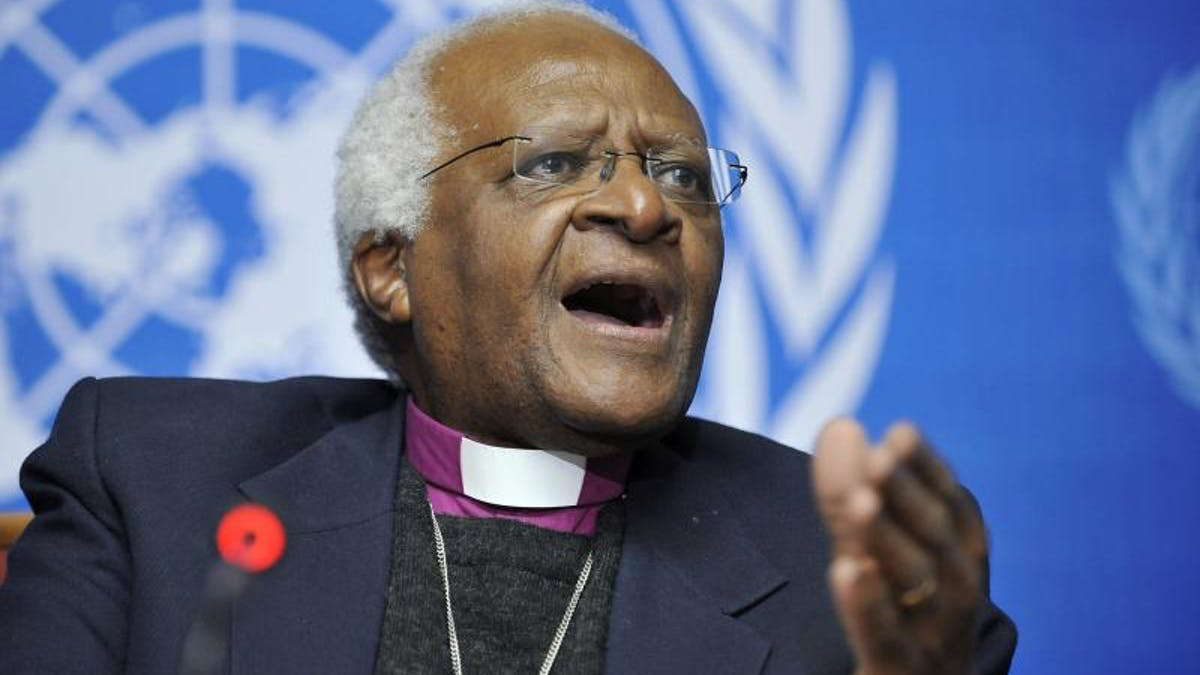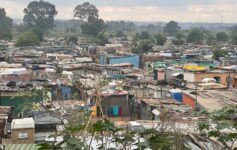
Flashpoint 1986. Desmond Tutu, the Anglican Archbishop of Cape Town, Nobel laureate, and freedom fighter was traveling to Cape Town from Jan Smuts International Airport in Johannesburg.
Hundreds of passengers streamed through the airport security checkpoint. None were stopped for secondary screening. But Tutu was.
Desmond Tutu, Secondary Airport Screening, And His Lasting Legacy
Was it his pectoral cross around his neck?
“Did they think it was a weapon?,” he asked a New York Times reporter traveling with him.
Apartheid authorities carefully searched him before he was allowed to go on his way. It was a reminder that despite his accolades and position as the conscience of a nation, he was still a second-class citizen in his own land.
As Alan Cowell reflects:
Maybe the cross itself was not a weapon, but the faith and belief it stood for provided the battle against white minority rule an overwhelming moral imperative that offered challenges as much to the archbishop as to his adversaries.
The episode at the airport-security desk unfolded several years before the release of Nelson Mandela in 1990 and the beginning of South Africa’s progression toward democracy. It was a time of choices, dictated variously by the mounting and increasingly harsh protest of the segregated Black townships, the crucibles of revolt; by the obduracy of the white minority regime then led by President P.W. Botha; by growing international pressure for economic sanctions; and by what seemed an inexorable recourse to violence.
Tutu, who died on Sunday at the age of 90, was a complicated figure. We credit him as being as peacemaker, and that he was.
But what made him so worthy of respect, in my eyes, was was that his calls for non-violence were not limited to the oppressive apartheid regime, but also directed toward the disenfranchised majority, of which extremest elements often resorted to violence in an effort to accelerate change.
This violence was not only perpetrated against the power structures of the day, but against other blacks who were deemed to be traitors, often without any evidence. Tutu called for fundamental reform in South Africa, but also fought against vigilante justice, condemning the violent retribution of renegades performing the role of judge, jury, and executioner as they roamed the streets of townships looking for alleged traitors to the cause.
Who could possibly remain non-violent when nearly every right we take for granted was withheld? Who could possibly try to fix a system that was so broken? Tutu was one such person and deserves our great respect for helping to demonstrate the power of non-violence.
CONCLUSION
For his role in pursuing justice, we salute Tutu this day and give thanks for the positive impact he made to give every South Africa a fairer chance at life, liberty, and property. Even as his work remains unfinished, let us give thanks that Tutu remained a steadfast critic of the sin of racism, pushing back against hate with love and division with unending calls for unity.
image: United Nations




Thank you for noting this. May all of us try to have his sense of humanity, respect for human rights and even good humor. During apartheid, he won the Nobel Peace prize, but even then was able to bring humor with this fine joke:
“A Zambian boasts about his country’s minister for naval affairs to a South African, who points out disparagingly that landlocked Zambia has no navy. The Zambian replies, ‘Well, in South Africa you have a minister of justice, don’t you?”
Thanks for your blog and keep it up.
I second that.
When I was in the Navy many years ago our icebreaker stopped at Capetown on our way down to Antarctica. Our black sailors experienced apartheid firsthand. It was not a pleasant shore leave for them.
Apartheid kept communism out and built South Africa into a prosperous nation. The people in charge now are destroying the nation. Sometimes the truth hurts. South Africa “freed” itself only to enslave itself to a miserable new era of incompetence and decline in standard of living.
Correct. Watching AWFLs and their low-T himbos try to spin the total disaster of black-run SA is always hilarious.
Comments like these are what fuels the divisive quarrels. Dignity of human life trumps whatever economic benefits you allude to.
Living in a poor crime infested country doesn’t sound very dignified to me.
Almost certainly picked on but if flying commercial, no actor or celebrity should insist DYKWIA.
Matthew, you have it backwards. South Africa was one of the safest and most productive countries in the world built from Dutch and later British people from nothing. Millions of blacks who had absolutely no role in building South Africa demanded to have a say and South Africa is now a dangerous country with a subpar economy. It is a rape capital. Whites are victims of genocide and White farmers are routinely murdered with knowledge of the government.
Democracy means one group enslaving the other. Tutu deserves no praise because he pushed for black majority democracy as opposed to freedom. The prior leaders of South Africa committed treason by not splitting South Africa into two where Whites would get Cape Town (which is already 50% white) and have a space to be safe, practice self determination, and not be slaves to the will of blacks.
Your democracy destroyed South Africa. Tutu played a role. He deserves shame.
So what? I was on a tour and a legally blind person was stopped. He has a perfect cover. In Vietnam, kids threw grenades into the back of deuce and half. Needed to chicken wire hanging down from top of truck.
Reagan said: “Trust but verify”
What does that have to do with this story?!?
Tutu also preached for full inclusion of gay and lesbian people and to abolish homophobia, a radical departure from his Anglican brethren at home.